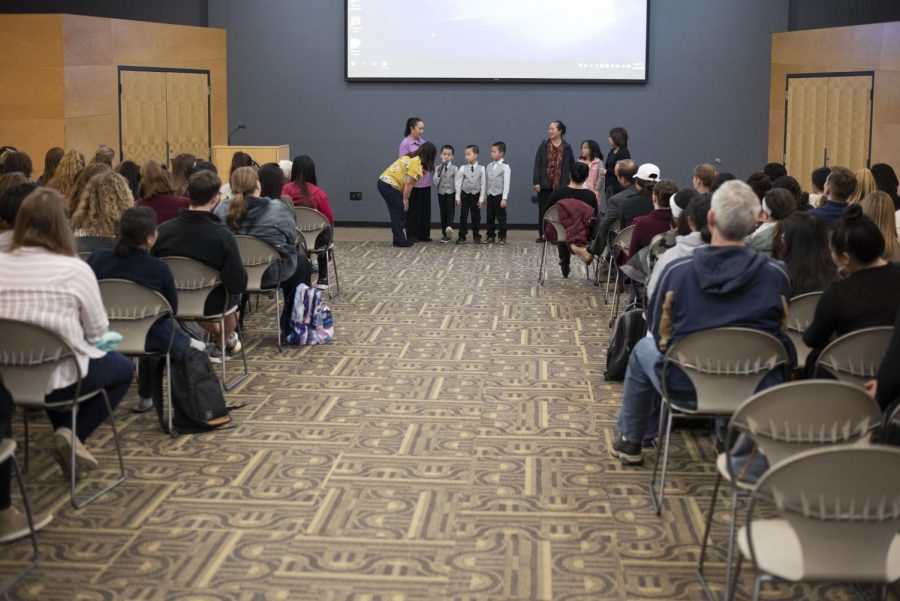Hmong women share stories of surviving genocide
UW Oshkosh hosted “Hmong Women Share Stories of Hmong Culture and Surviving Genocide” in Reeve Union on April 16 by welcoming local individuals to share their stories through presentations and videos.
April 18, 2019
On April 16, UW Oshkosh Quest III students showed presentations and videos of Hmong women’s’ stories of their survival strategies in the face of genocide and their building of a new life in the Fox Valley.
UWO Center for Excellence in Teaching and Learning Interim Director and Quest III professor Jordan Landry said they have been working on the project for six years.
“I knew that to build a really great community engagement project about the Hmong, I would need to partner right from the start with members of the Hmong community,” Landry said. “ I started by talking to a number of Hmong leaders on campus whose work had inspired me and whom I had worked with before. Four people have created this project with me: Mai Nhia Xiong, Houa Xiong, Thomas Xiong and Mai Khou Xiong.”
UWO Quest III student Selena Yang said by doing the presentation, she’s learned more of what it means to be a Hmong person.
“The rich and deep history Hmong people have is amazingly beautiful but also tragic because of events from the past,” Yang said. “Doing these presentations has helped me understand more of my culture, history and where I stand as a Hmong person.”
Speaker and survivor of genocide Neng Thao said Hmong people were brave during the genocide.
“Hmong people survived by perseverance and pressing on,” Thao said.
Landry said they want students to realize that everything being said about refugees and immigrants in this particular moment is not only untrue, but unjust.
“I hope that students see the ways in which the elder Hmong women’s escape from genocide shows their strength, resilience, dedication to family and creativity in the face of dangerous threats to themselves and their families,” Landry said.
Yang said while interviewing the Hmong women, what she found shocking were the stories of how much hate and racism they experienced.
“I would have not of thought that they would’ve had to go through many experiences relating to racism and hate in the United States,” Yang said.
Speaker and survivor of genocide Kia Vang said there is one thing she will never forget during her journey through the jungle.
“I went through so many dead people,” Vang said. “Some still alive and some still dead, some in pretty rough shape.”
Landry said they want students who attend to realize the many challenges faced by refugees who come to this country, ones who can’t go back to their homeland.
“More than that, I want them to see the hard work and contributions that Hmong people make to this community,” Landry said. “And I hope that they understand at the end of the event that Hmong people value hard work and that hard work led to their being able to build a life in this area, not public assistance or any so-called opportunities.”
Student Achievement Services Assistant Director Mai Khou Xiong said she was born in a transition camp.
“We were there waiting to complete documentation to come to the U.S.,” Xiong said. “I don’t have many memories of being there, but I do have photos I look at.”
Yang said it’s important to learn to be aware of Hmong people and their history.
“Learning more about the history and being able to interview Hmong women,” Yang said. “I can tell you that many of my classmates not only felt inspired, but also felt more educated of Hmong people and their history.”














